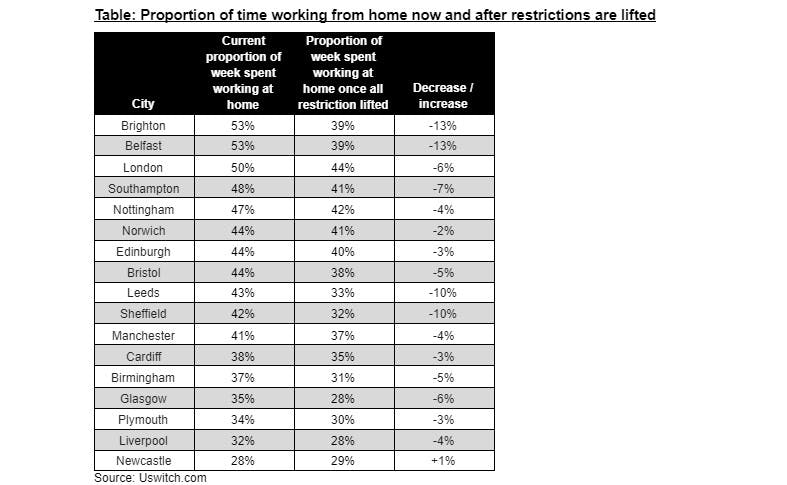
Work from home figures set to drop in UK by 41% after covid restrictions are lifted
If every homeworker returned to the office for one day a week, it would save an estimated £21 million on weekly energy bills, according to new research from Uswitch.com, the comparison and switching service. Workers are cautious about returning to the office, with most planning to return on 16th August — almost a month after ‘freedom day’ of 19th July. A significant number of people have no plans to head back to the workplace in the short term, with a fifth of employees (20%) saying they don’t plan to return to their offices for more than 18 months.
Last year’s lockdown has transformed the habits of millions of office-based staff, as many worked from home for the first time. With workers saving time and money by not commuting, and many experiencing a better work-life balance, millions will continue to work at home for at least some of the week. However, those who decide to return to their workplace could make significant savings on their energy bills, according to Uswitch experts. At-home workers have been using more energy in the past year by having the heating on, using the kettle more, cooking lunches and even having the TV or radio running in the background.
Using electric heaters to warm up garages and outdoor sheds converted into offices could cost homeworkers an additional £4.7 million a week, while the need to use the dishwasher for an extra cycle could add a further £5.2 million to energy bills[1]. Boiling a kettle an extra four times a week would cost just £0.07 — saving only £3.78 over a whole year of homeworking.
Brighton is the UK’s home-working capital, with employees spending more than 53% of their working week at home. It is one of three cities where workers spend the majority of their time at home, with the other being London and Belfast[6].
However, London is the city most likely to hang onto the work-from-home habit, with employees predicting they will spend 44% of their time at home once all restrictions are lifted. In an interesting sign of the changing times, Newcastle residents plan to increase their time at home.

Information Source: Read Full Release ..–>


